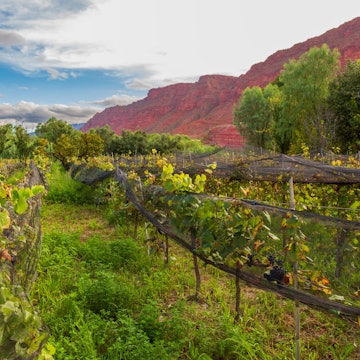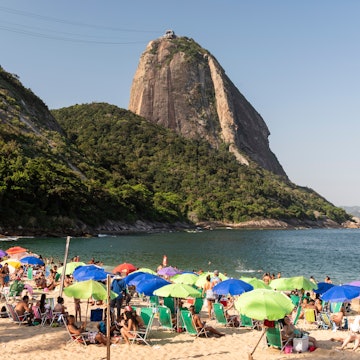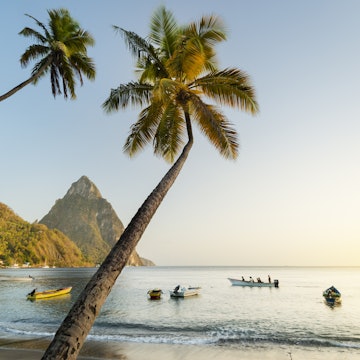

Cerro Catedral, Bariloche. Shutterstock
A can’t-miss destination in South America, Argentina won't disappoint even the most demanding traveler.
There is so much to see – from the southernmost city in the world to a desert plateau, from ski slopes to rainforests – and you can't miss the glamorous and bustling metropolis of Buenos Aires.
Unless you have several months to spare, select a few destinations from our list, making sure that it’s the right season, and head out to discover the eighth-largest country in the world. There’s always something wonderful to do in Argentina.
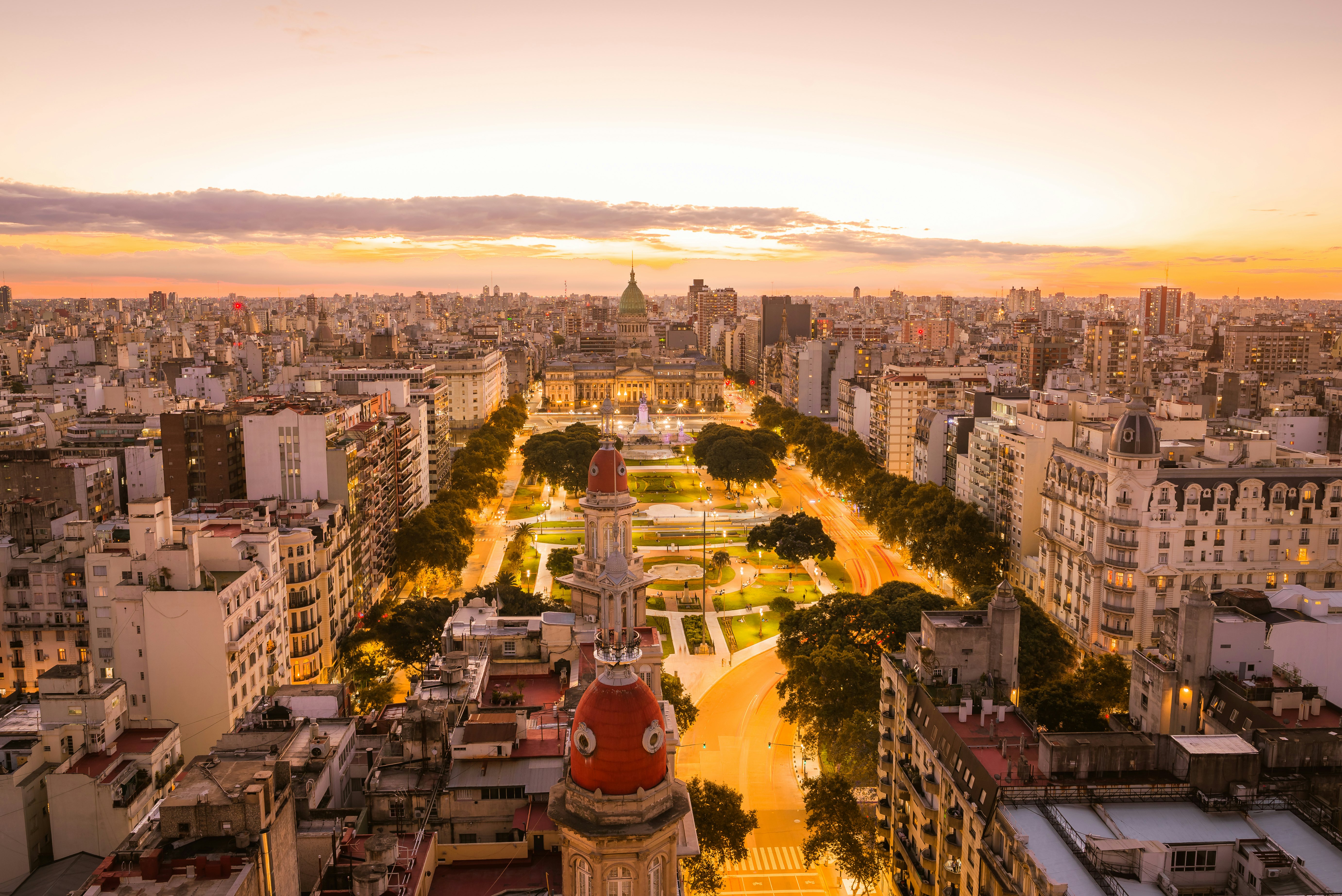
1. Buenos Aires
Best city
Whatever you want, the city of Buenos Aires has it in droves. From Anchoita restaurant, serving the best ingredients (and wines) from across the country, to raucous football matches almost every day, glamour and fun are never far.
The capital city boasts the most bookstores per capita in the world: Eterna Cadencia and Notanpuán are just two of dozens peppered throughout the city, and you'll find stalls of booksellers in Plaza Italia and Parque Rivadavia every day.
If you're looking for English-language titles, Walrus Books, in the old formerly aristocratic neighborhood of San Telmo, will not disappoint, though most bookstores have at least a small section in English, French and German.
There’s world-class opera, ballet and symphonic music at the Teatro Colón, and Museo de Arte Latinoamericano de Buenos Aires (MALBA), Museo de Arte Moderno de Buenos Aires (MAMBA) and the Museo de Bellas Artes hold some of the very best art from Latin America and across the world. Av Corrientes, with its pizzerias, late-night bookstores and Broadway-caliber theaters always entertain.
Local tip: Though Buenos Aires is lovely year-round, springtime – with purple jacaranda blossoms lining the streets and generally perfect weather – is particularly unforgettable. Palermo and San Telmo are the best neighborhoods for their convenience and density of restaurants and other attractions.
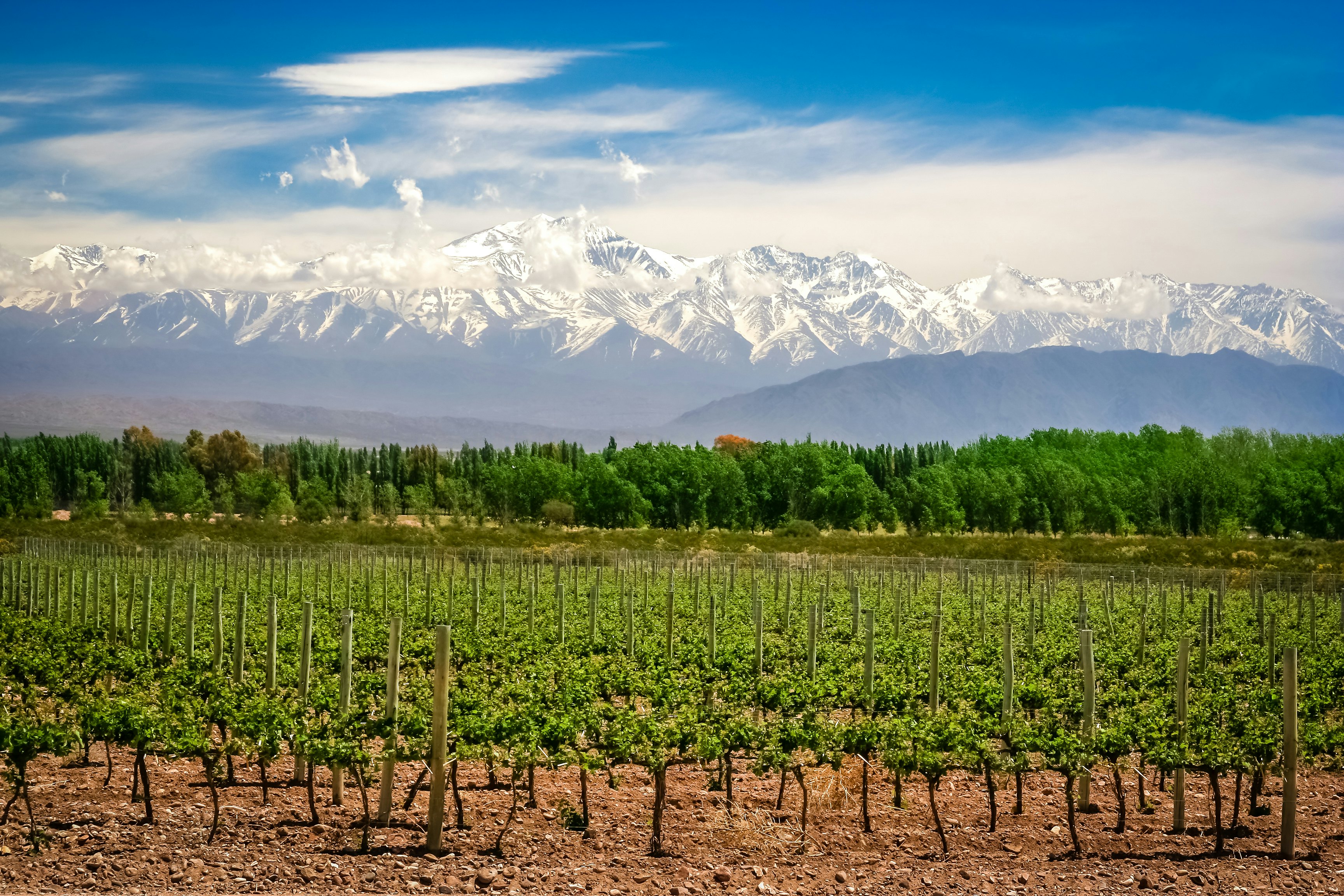
2. Mendoza
Best for wine
The Andean province of Mendoza, with its hundreds of bodegas (winemakers) and delicious malbecs, cabernet sauvignons and syrahs measures up against just about any wine hot spot around the world.
Combine excursions to vineyards that offer daily tastings and workshops with some of the best cuisine in Argentina. The city of Mendoza received half of the country’s Michelin stars after the guide's 2023 arrival in Argentina, while the city also offers access to outdoor activities like rafting and hiking; The combination makes for an excellent trip.
Planning tip: Bodegas and hotels fill up quickly, especially in the summer when Argentines travel, so book your slots at least a month in advance.

3. El Chaltén
Best for hiking
The small Patagonia town of El Chaltén, in the province of Santa Cruz, is one of the premier trekking destinations of the world. Close to the imposing Fitz Roy mountain and the Parque Nacional Los Glaciares, those who want to give their journey South an exploratory twist cannot miss its truly unrivaled vistas and hundreds of kilometers of hiking trails.
Inside the same massive national park, accessible through the nearby city of El Calafate, is the 30km-long, 5km-wide and 60m-high (18 miles long, 3 miles wide, 197ft high) Glaciar Perito Moreno, famous for the massive sheets of ice that break off in the summer near the viewing platform and into the water below.
Planning tip: Avoid going in the wintertime if at all possible. Many trails will be closed and the weather conditions can be inhospitable. No matter the season, pack a windbreaker – you won’t regret it.

4. Mar del Plata, the Atlantic Coast
Best for a summer escape
Though Argentina is not famous for its beaches, Mar del Plata is Argentina’s favorite summer holiday destination. Its central hotel-casino is a symbol of Argentina’s modernization in the 1930s and '40s.
The city hosts an iconic film festival and is the beloved birthplace of the alfajores (cookie-type sandwiches usually stuffed with dulce de leche).
Most Argentines have beloved childhood memories in the city’s center, surrounded by shops, panqueques (a dulce de leche crepe), and churros filled with dulce de leche.
Planning tip: If the city is a little too much, smaller towns like Cariló are more intimate and no less beautiful, and only a few hours’ drive from the city of Buenos Aires.

5. Iguazú Falls
Best for waterfalls
Located at the “triple border” between Argentina, Brazil, and Paraguay, the Iguazú region has the most impressive network of waterfalls in the world.
Accessible from both Argentina and Brazil and in the middle of a dense, luxuriant rainforest, there’s a reason the falls were selected as one of seven “Natural Wonders of the World” in 2011 and in 1984 named a UNESCO World Heritage Site.
Be ready to move across the Argentina–Brazil border, and don’t miss the Garganta del Diablo (Devil’s throat), the Falls’ gargantuan centerpiece. Though the central chute of the falls is technically on the Brazilian side, the Argentina viewing platform is better located.
Planning tip: Many of the attractions are on the Brazilian side. The land border between Brazil and Argentina is breezy to cross, though there’s often a line, especially around 6pm – tourists sometimes cross it multiple times a day. Do not forget your passport!
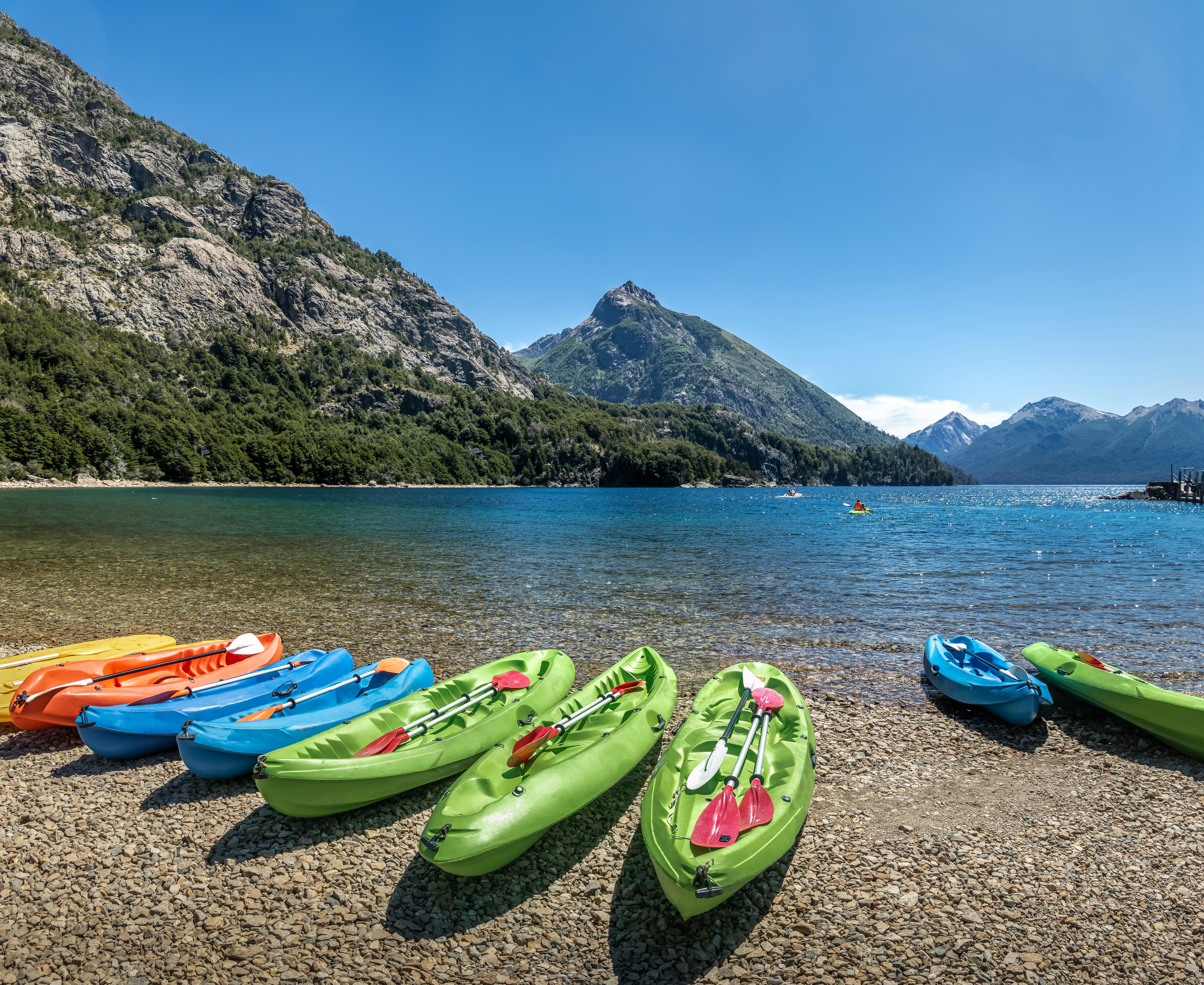
6. Bariloche
Best for time by the lake
Located on the shores of Lake Nahuel Huapi, and nested in an Andean valley, the city of Bariloche is the premier tourist destination in the Argentine Patagonia. There’s no dreamier sight than temperate forests and pristine lakesides hidden between the mountains.
Camping in the Siete Lagos (Seven Lakes) district, organized around a road headed from neighboring hippie hot spot Villa la Angostura to San Martín de los Andes, is a rite of passage for Argentines. And, with the world’s best chocolate to boot, a trip to Bariloche is well worth your time.
Bariloche is next to Cerro Catedral, the largest winter sports resort in South America and the legendary home of winter sports in Argentina. Endless trails, an abundance of places to eat and scenic landscapes – overlooking the many lakes in the area make it a destination you cannot miss.
Planning tip: Drive the Seven Lakes Scenic Road, or take the bus, for an unforgettable excursion into some jaw-droppingly beautiful lakes in the middle of the Andes, between Bariloche and San Martín de los Andes. This road trip only takes a few hours.

7. Quebrada de Humahuaca and Salinas Grandes, Jujuy
Best for unforgettable mountains and salt flats
Though less famous than their Patagonian counterparts, the Andes in Northwestern Argentina are just as breathtaking. Quebrada de Humahuaca in the province of Jujuy, near the border with Bolivia, has a plethora of unforgettable sights to behold, from grazing guanacos (a type of llama) to striped mountains that range in color from almost white to deep purple.
From the Hornocal mountain range’s almost psychedelic hues to the Salinas Grandes salt flats, one of the largest in the world, Jujuy will challenge your sense of nature’s possibilities.
It also has the history to match, with some of the earliest evidence of human habitation in the Southern Cone and a rich indigenous cultural influence to this day.
Having been near the Southern edge of the Inca empire, the Kolla, Atacama, Quechua and Omaguaca people carry on their traditions despite centuries of colonialism.
The cuisine here is pretty great. The town of Tilcara hosts El Nuevo Progreso, an award-winning restaurant that elevates ancestral dishes like Humita en Chala – a mix of cheese and corn wrapped in a corn husk and steamed – and tamales to gourmet exquisiteness with avant-garde techniques. Llama meat is a unique delicacy of the region, often made into salami.
Planning tip: The Humahuaca Valley is more than 3000m (9843ft) above sea level, and some attractions are up to 4350m (14,272ft) above sea level. Be prepared for the low oxygen. Locals chew coca leaves, a natural energetic, for help with the height, but candies made with coca flour are on sale everywhere in Jujuy. Painkillers can help with headaches.
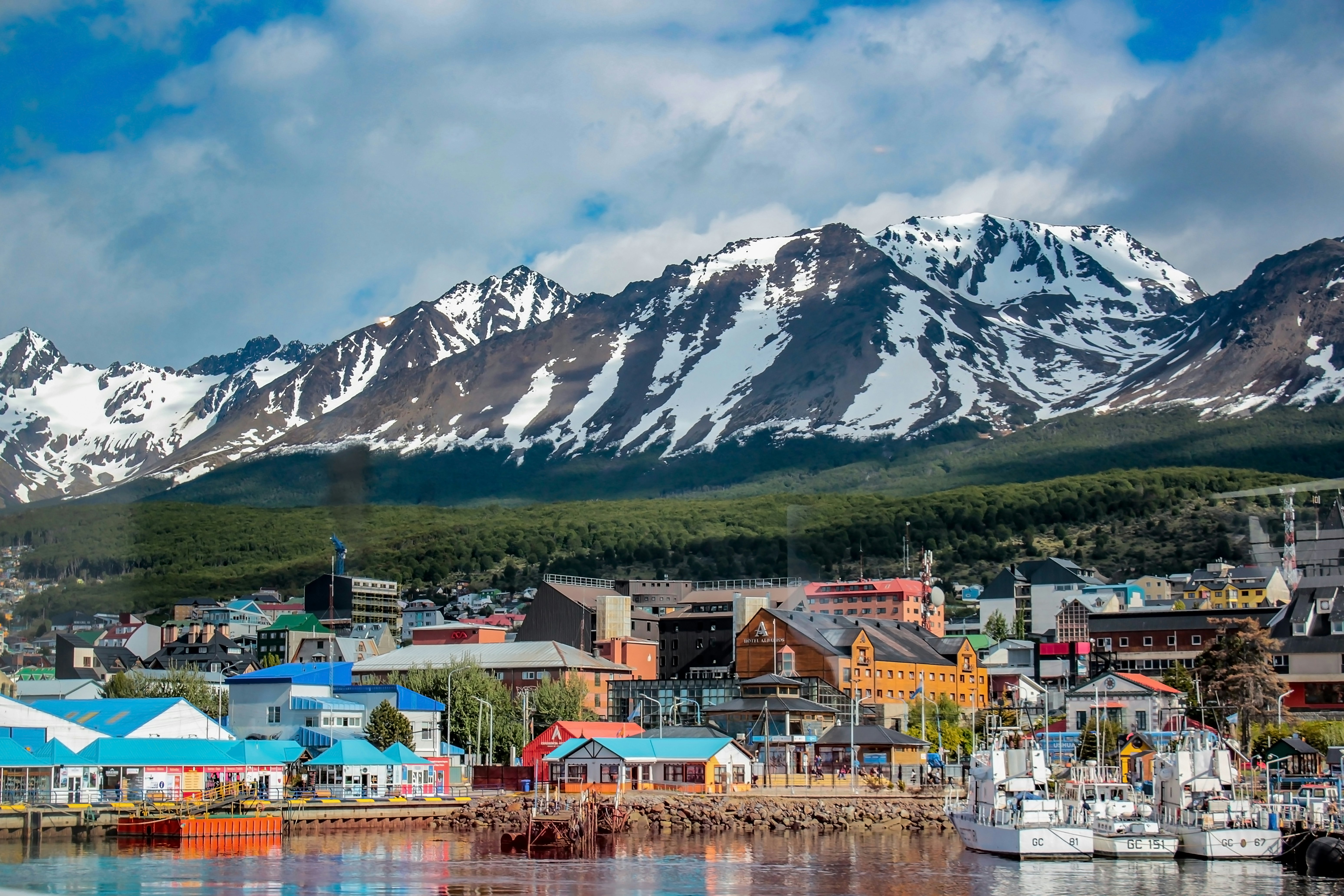
8. Ushuaia
Best for reaching Antarctica
The city of Ushuaia (population 82,000) is the southernmost city in the world. Underneath the Andes and just 1000km (620 miles) from Antarctica to the south, Ushuaia’s austere and often stormy beauty cannot be understated.
The city is a major global nexus for hiking in the summer and draws snow sports enthusiasts to Cerro Castor Ski Resort in the winter. There’s excellent local cuisine like world-famous cordero patagónico (lamb cooked low and slow over an open fire) and crab, caught nearby and always as fresh as can be.
Planning tip: Pack a winter jacket – even in summer, the temperature rarely breaks 15°C (59°F).

9. Parque Nacional Iberá
Best for bird-watching
The Iberá Estuary in the northeastern province of Corrientes, has some of the most extraordinary bird populations in the world.
Arrange a kayak or boat trip from the small town of Carlos Pellegrini to see the more than 360 bird species, such as the majestic southern screamer, various types of heron and the grumpy-looking guira cuckoo, as well as monkeys and unique reptiles that thrive in the area.
The Iberá also bears the marks of centuries of colonization and ruins of Jesuit “missions” – where Guaranís and other indigenous groups were taught Spanish and Catholic doctrine – that were abandoned in the 18th century following the order’s expulsion from the region.













